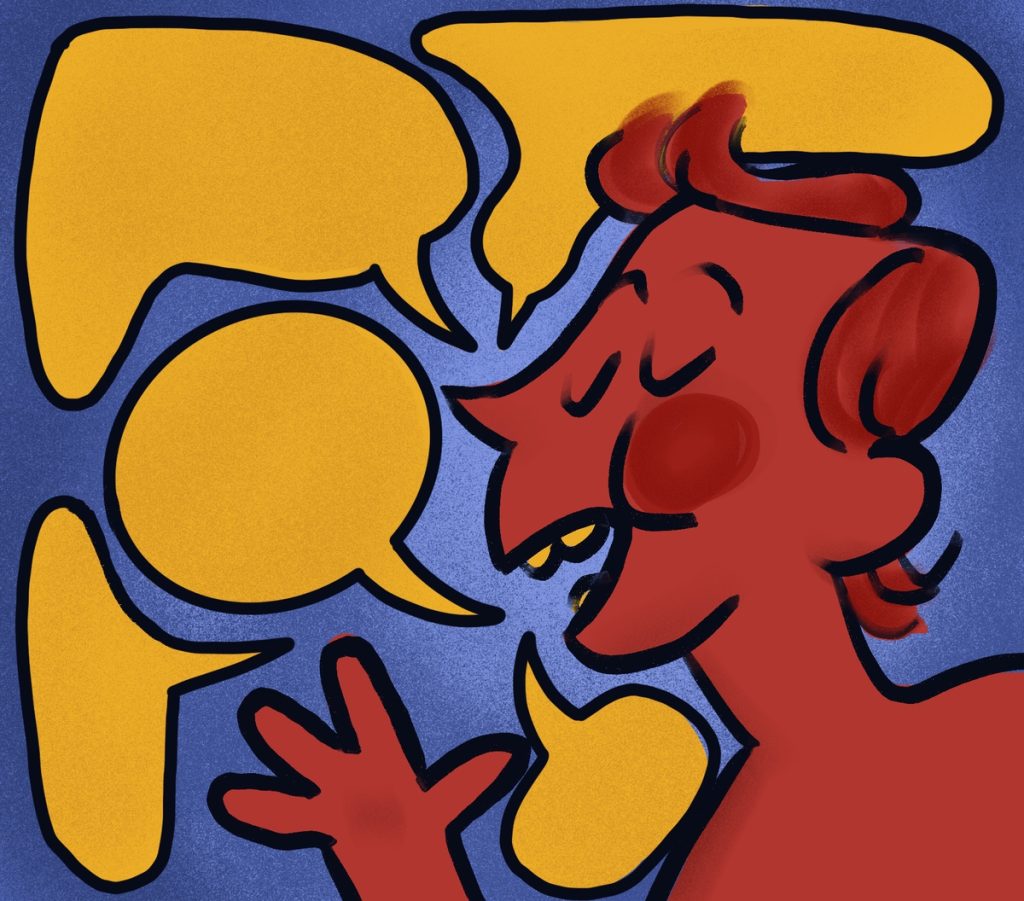This week, we interviewed Dr. Wladislaw Cichocki, a UNB professor of French and Linguistics, about the Acadian dialect (known to linguists as a ‘variety’), its history, and its infamy with a distinct generational divide: Chiac or Chiaque.
“Chiac has been here for quite a while, from what I can gather,” Dr. Cichocki said. “It came about because people [in New Brunswick] live in dialect contact situations. Southeastern New Brunswick francophones have had a lot of contact with English and so with contact languages, they do things like borrow from each other.”
This is where the unique sound of Chiaque comes from. There are myriad expressions that include English words which make the dialect quite unique to listen to and read.
Some examples include:
“J’ai crossé la street.”
“J’aime right ton accent.”
“Worry pas ta brain.”
“Enjoy ta poutine!”
But there have been mixed feelings about the dialect from French purists. “[Chiac] has always been seen sort of in a negative light. In this case, English is the more dominant language and so it tends to give more words to the French than the other way around,” Cichocki explained.
In the 1970s, educators would often scold students who used the dialect, essentially vilifying them for using any English vocabulary. “It was a stigmatized variety of French [but] it’s [just] French with a good dose of older French terms and a whole bunch of new English forms that have been adapted and integrated in different ways,” said Dr. Cichocki.
It was believed that young people who spoke Chiac were jeopardizing their academic and career pursuits. “The perception was very negative for reasons like getting jobs and for reasons of success in the francophone world,” Cichocki said. “[Chiac] is perceived with a respect to a more ‘legitimate’ variety of French… say standard French from Europe to French in Quebec, because there’s a feeling that it’s not as good as the other varieties.”
As with other forms of stigmatization, the stigma surrounding Chiac-speaking francophones seems to be based on ideological beliefs rather than empirical evidence. “Prescriptivists have that feeling, that it’s not a good thing to have. So they want to keep it in a box or push it away,“ Dr. Cichocki said.
Cichocki made it abundantly clear that “you can’t water a language down. Languages die with people.” In support of the legitimate origins and continuance of Chiaque without eroding traditional French, “it’s a perfectly natural phenomenon. It happens everywhere in the world where you have two languages in contact. Stuff gets exchanged. The issue here is the social perception.”
Although the controversy of speaking Chiaque is often the front-runner in discourse, there is another side to it: Chiac is a perfectly legitimate way of speaking and Dr. Cichocki encourages the use and exploration of literature that uses the dialect. “Young people speaking Chiac have nothing to be ashamed about. There are lots of Acadian authors writing and speaking in Chiac. They are writing poems that are wonderful and legitimate.”
Chiaque is far from being the only amalgamation of languages across Atlantic Canada. “It’s [just] part of the Acadian French family of dialects. Just like we have different dialects of Acadian spoken in Southeastern New Brunswick, in the Northeast, another in Southwest Nova Scotia, and another in Northern Cape Breton. They’re different varieties of Acadian French, and Chiac is just another one of them,” Cichocki affirmed. “It just happens to have a certain notoriety in the world.”




